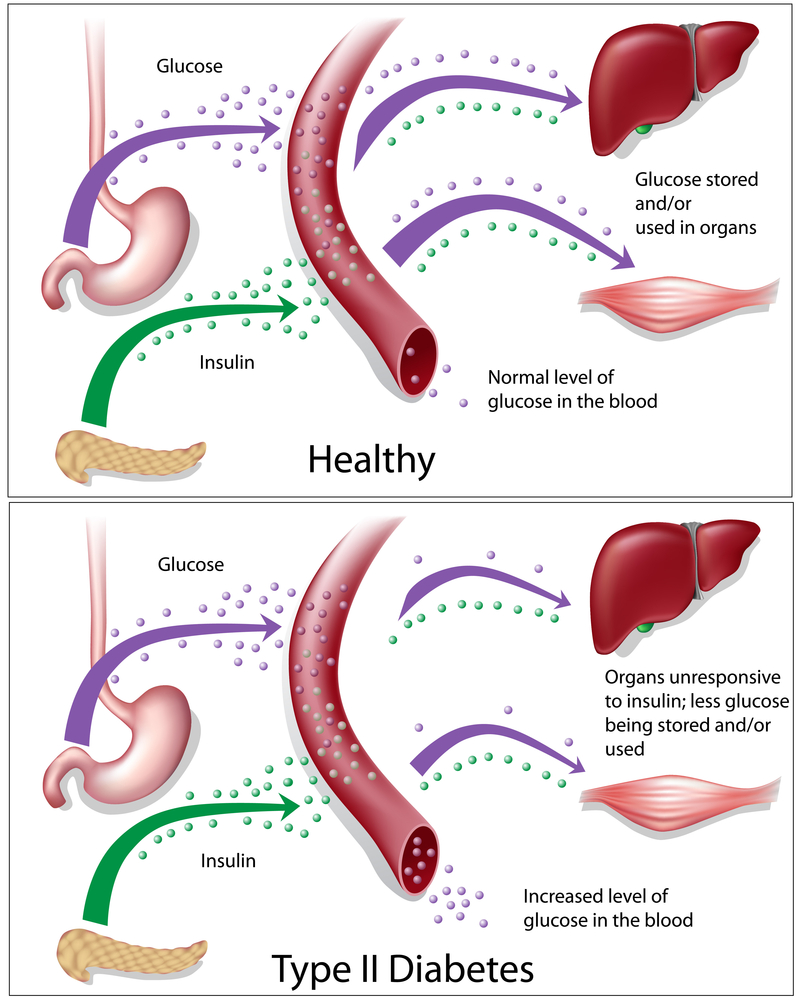Diabetes mellitus, also known as simply diabetes, is a group of metabolic diseases in which there are high blood sugar levels over a prolonged period. It is due to either the pancreas not producing enough insulin, or the cells of the body not responding properly to the insulin produced. The high blood sugar produces symptoms of frequent urination, increased thirst, and increased hunger. Acute complications include diabetic ketoacidosis and nonketotic hyperosmolar coma. Serious long-term complications include heart disease, stroke, kidney failure, foot ulcers and damage to the eyes.
There are three main types of diabetes. Type 1 results from the body’s failure to produce enough insulin. This form is also known as was “juvenile diabetes” since it occurs in the young and is considered genetic. Type 2 begins with insulin resistance, in which cells fail to respond to insulin properly. As the disease progresses a lack of insulin may also develop. This form is also known as “adult-onset diabetes”. The primary cause is excessive body weight and not enough exercise.

